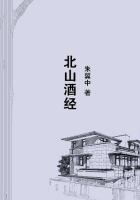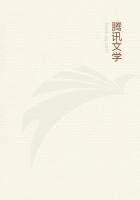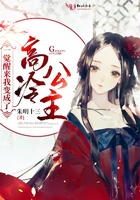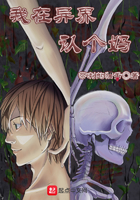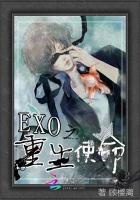Soc. You are breaking the original agreement, Callicles, and will no longer be a satisfactory companion in the search after truth, if you say what is contrary to your real opinion.
Cal. Why, that is what you are doing too, Socrates.
Soc. Then we are both doing wrong. Still, my dear friend, I would ask you to consider whether pleasure, from whatever source derived, is the good; for, if this be true, then the disagreeable consequences which have been darkly intimated must follow, and many others.
Cal. That, Socrates, is only your opinion.
Soc. And do you, Callicles, seriously maintain what you are saying?
Cal. Indeed I do.
Soc. Then, as you are in earnest, shall we proceed with the argument?
Cal. By all means.
Soc. Well, if you are willing to proceed, determine this question for me:-There is something, I presume, which you would call knowledge?
Cal. There is.
Soc. And were you not saying just now, that some courage implied knowledge?
Cal. I was.
Soc. And you were speaking of courage and knowledge as two things different from one another?
Cal. Certainly I was.
Soc. And would you say that pleasure and knowledge are the same, or not the same?
Cal. Not the same, O man of wisdom.
Soc. And would you say that courage differed from pleasure?
Cal. Certainly.
Soc. Well, then, let us remember that Callicles, the Acharnian, says that pleasure and good are the same; but that knowledge and courage are not the same, either with one another, or with the good.
Cal. And what does our friend Socrates, of Foxton, say -does he assent to this, or not?
Soc. He does not assent; neither will Callicles, when he sees himself truly. You will admit, I suppose, that good and evil fortune are opposed to each other?
Cal. Yes.
Soc. And if they are opposed to each other, then, like health and disease, they exclude one another; a man cannot have them both, or be without them both, at the same time?
Cal. What do you mean?
Soc. Take the case of any bodily affection:-a man may have the complaint in his eyes which is called ophthalmia?
Cal. To be sure.
Soc. But he surely cannot have the same eyes well and sound at the same time?
Cal. Certainly not.
Soc. And when he has got rid of his ophthalmia, has he got rid of the health of his eyes too? Is the final result, that he gets rid of them both together?
Cal. Certainly not.
Soc. That would surely be marvellous and absurd?
Cal. Very.
Soc. I suppose that he is affected by them, and gets rid of them in turns?
Cal. Yes.
Soc. And he may have strength and weakness in the same way, by fits?
Cal. Yes.
Soc. Or swiftness and slowness?
Cal. Certainly.
Soc. And does he have and not have good and happiness, and their opposites, evil and misery, in a similar alternation?
Cal. Certainly he has.
Soc. If then there be anything which a man has and has not at the same time, clearly that cannot be good and evil-do we agree? Please not to answer without consideration.
Cal. I entirely agree.
Soc. Go back now to our former admissions.-Did you say that to hunger, I mean the mere state of hunger, was pleasant or painful?
Cal. I said painful, but that to eat when you are hungry is pleasant.
Soc. I know; but still the actual hunger is painful: am I not right?
Cal. Yes.
Soc. And thirst, too, is painful?
Cal. Yes, very.
Soc. Need I adduce any more instances, or would you agree that all wants or desires are painful?
Cal. I agree, and therefore you need not adduce any more instances.
Soc. Very good. And you would admit that to drink, when you are thirsty, is pleasant?
Cal. Yes.
Soc. And in the sentence which you have just uttered, the word "thirsty" implies pain?
Cal. Yes.
Soc. And the word "drinking" is expressive of pleasure, and of the satisfaction of the want?
Cal. Yes.
Soc. There is pleasure in drinking?
Cal. Certainly.
Soc. When you are thirsty?
Soc. And in pain?
Cal. Yes.
Soc. Do you see the inference:-that pleasure and pain are simultaneous, when you say that being thirsty, you drink? For are they not simultaneous, and do they not affect at the same time the same part, whether of the soul or the body?-which of them is affected cannot be supposed to be of any consequence: Is not this true?
Cal. It is.
Soc. You said also, that no man could have good and evil fortune at the same time?
Cal. Yes, I did.
Soc. But, you admitted that when in pain a man might also have pleasure?
Cal. Clearly.
Soc. Then pleasure is not the same as good fortune, or pain the same as evil fortune, and therefore the good is not the same as the pleasant?
Cal. I wish I knew, Socrates, what your quibbling means.
Soc. You know, Callicles, but you affect not to know.
Cal. Well, get on, and don't keep fooling: then you will know what a wiseacre you are in your admonition of me.
Soc. Does not a man cease from his thirst and from his pleasure in drinking at the same time?
Cal. I do not understand what you are saying.
Gor. Nay, Callicles, answer, if only for our sakes;-we should like to hear the argument out.
Cal. Yes, Gorgias, but I must complain of the habitual trifling of Socrates; he is always arguing about little and unworthy questions.
Gor. What matter? Your reputation, Callicles, is not at stake. Let Socrates argue in his own fashion.
Cal. Well, then, Socrates, you shall ask these little peddling questions, since Gorgias wishes to have them.
Soc. I envy you, Callicles, for having been initiated into the great mysteries before you were initiated into the lesser. I thought that this was not allowable, But to return to our argument:-Does not a man cease from thirsting and from pleasure of drinking at the same moment?
Cal. True.
Soc. And if he is hungry, or has any other desire, does he not cease from the desire and the pleasure at the same moment?
Cal. Very true.
Soc. Then he ceases from pain and pleasure at the same moment?
Cal. Yes.
Soc. But he does not cease from good and evil at the same moment, as you have admitted: do you still adhere to what you said?
Cal. Yes, I do; but what is the inference?

